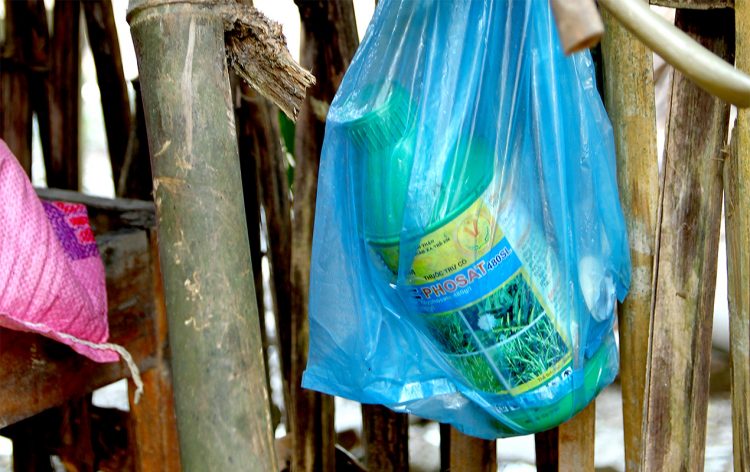Penang, Malaysia—Pesticide Action Network Asia Pacific (PANAP) today said that corporate accountability and justice for victims of glyphosate poisoning is still wanting, after agrochemical giant Bayer’s more than $10 Billion settlement of 95,000 suits filed by glyphosate users in the US.
Considered as among the largest settlements ever in US civil litigation, the payout however contains “no admission of liability and wrongdoing” by Bayer’s Monsanto, manufacturer of RoundUp (glyphosate). Glyphosate, the world’s most widely used herbicide, is the subject of thousands of lawsuits for its link with non-Hodgkin’s lymphoma, a form of cancer. It is included in PAN International’s list of Highly Hazardous Pesticides (HHPs) that are targeted for global elimination or phase-out.
The settlement includes $1.25 billion for potential future claims from Roundup customers who may develop non-Hodgkin’s lymphoma. A so-called “independent” panel of scientists will be set up to decide whether Roundup causes cancer—however, Bayer will be involved in selecting such a panel. The settlement also allows for Bayer to continue selling RoundUp without safety warnings. Some 30,000 individuals have refused to become part of the settlement.
“While it is good that Bayer has agreed to compensate thousands of individuals for damages caused by glyphosate, it has not admitted to any wrongdoing, therefore refusing to take the first real step towards justice for victims. Bayer will also not stop selling the same toxic herbicide and can even use this settlement to evade future accountability. Roundup will continue to be available not just in the US but the rest of the world—without any warning labels that it can cause cancer and other diseases. There are already countless victims of glyphosate poisoning from the Global South who do not have access to legal recourse and have little hope of compensation,” said Sarojeni Rengam, PANAP executive director.
In a 7-country study by PANAP on the use of HHPs in the Asia Pacific region, glyphosate was found to be used with a wide range of crops in India, Indonesia, Malaysia, Philippines, and Vietnam. In India, 78% of respondents across seven states used glyphosate, with majority exhibiting various symptoms of poisoning. Glyphosate was also found to be widely used in palm oil plantations in North Sumatra, Indonesia; Sabah, Malaysia; and Mindanao, Philippines where workers were found to exhibit poisoning symptoms.
Glyphosate, listed as a probable carcinogen by the International Agency for Research on Cancer, is linked to a wide range of diseases. Glyphosate at low concentrations damages liver, kidney and skin cells. It’s long-term toxic effects include endocrine-related diseases and metabolic disorders, kidney disease, and reproductive and developmental disorders. Glyphosate also has neurotoxic effects and exposure is linked with Parkinson’s disease, ADHD and autism in children.
“There is no need for another panel of experts, much less one whose independence may be compromised by Bayer, to prove the health and environmental harm caused by glyphosate. This fact has already been proven many times over by scientific studies and user experiences all over world since its introduction to the market in the 1980s. What we need is for governments and regulatory bodies to step in and decisively ban glyphosate, assess the extent of glyphosate poisoning, and demand compensation from Bayer in behalf of victims,” said Rengam.
PANAP noted that since acquiring Monsanto in 2018, Bayer’s profits soared by 142%. Its assets ballooned from USD 75.08-B in 2017 to USD 126.26-B in 2019—illustrating how the settlement amount represents only a fraction of its profits, and would easily be offset by profits arising from future sales of glyphosate.
PANAP pointed out that in a positive development, more and more governments are deciding to ban glyphosate, the latest one being Mexico. PAN is actively involved in advocacy work to push various international bodies to enact a global legally-binding mechanism to eliminate HHPs such as glyphosate, and replace them with agroecological alternatives.###
Reference: Sarojeni Rengam, PAN Asia Pacific, Executive Director, sarojeni.rengam@panap.net








Discussion about this post